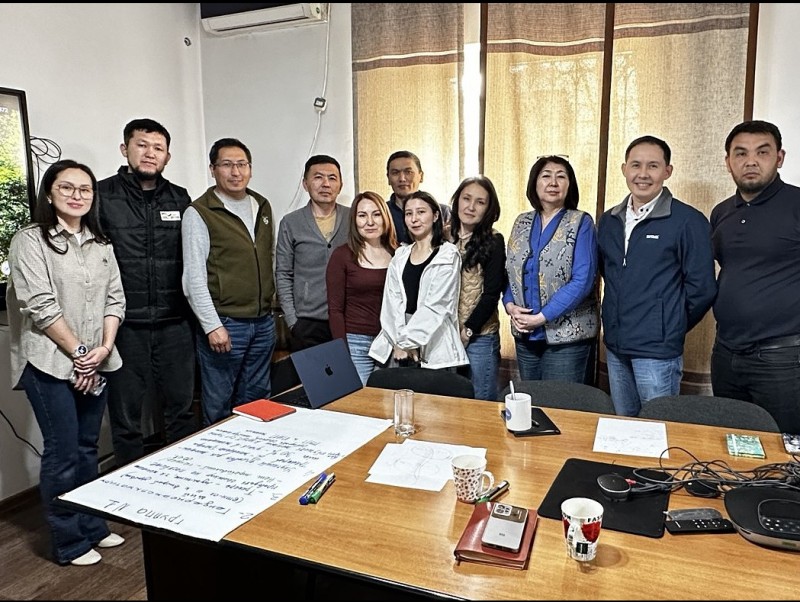
This question was one of the key topics at a seminar for project specialists of the СAMР Alatoo PF, conducted by international consultant Reyna Arturova.
A gender-sensitive approach to natural resource management is becoming increasingly important. In Kyrgyzstan, a significant proportion of women are engaged in activities directly linked to the environment. According to Reyna Arturova, over 60% of participants in water and sanitation community groups are women, and at least 20% hold leadership positions in these structures. However, only 15% of women have legal ownership of land, and in rural areas, more than half of them work in the informal sector.
In projects implemented by the СAMР Alatoo PF, women are mostly involved in processing dairy and forest products, collecting and drying medicinal herbs, growing and selling fruits and vegetables, and tourism. Men, as a rule, are responsible for livestock care and grazing, extracting natural resources, and providing irrigation water. As such, access to natural resources is often determined by the nature of gender-specific employment. At the same time, economic inequality persists: women frequently depend on men for income distribution from resource use. Project activities should help overcome such barriers by creating conditions for fairer and more equitable participation.
One section of the seminar focused on gender sensitivity. Incorporating gender aspects into projects is a requirement for many donor organizations. For example, in several initiatives implemented by the СAMР Alatoo PF, a minimum of 30% female participation in project activities is mandatory. However, reaching this target is often challenging due to entrenched social norms and cultural traditions, especially in rural regions. As СAMР Alatoo PF staff noted, women may decline to attend trainings, surveys, or other events due to household responsibilities or prevailing social expectations.
“In some villages, especially in the south, men and women are not allowed to be in the same room. Therefore, we have to organize separate surveys and interviews for women and men,” shared Erkinbek Koichumanov, a GIS specialist. Reyna Arturova emphasized that donors are increasingly recognizing these cultural specificities when planning and evaluating projects.
During the seminar, participants were also introduced to the concept of the “gender continuum,” which helps define an organization's approach to gender — from “gender-blind” to “gender-transformative.” To reinforce this concept, participants took part in practical exercises.
As noted during the seminar, such sessions help specialists better understand how gender influences people’s lives and the management of natural resources. This is essential to ensure that projects are truly inclusive and address the needs of all groups — women, men, the elderly, people with disabilities, children, ethnic communities, and others.
The training was organised as part of global project "Systematic Learning and Mainstreaming of Biodiversity" supported by the NABU.
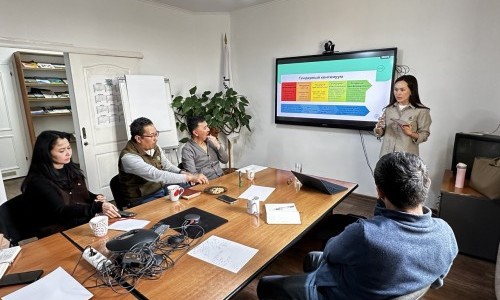
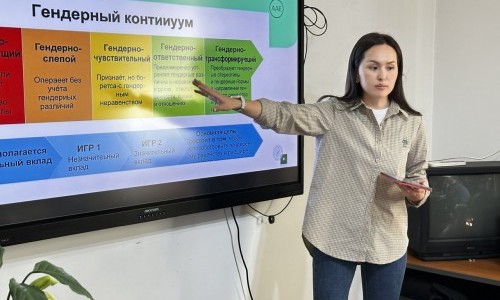
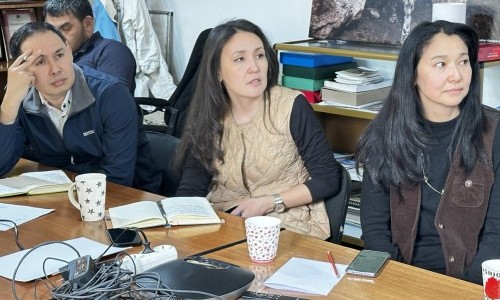
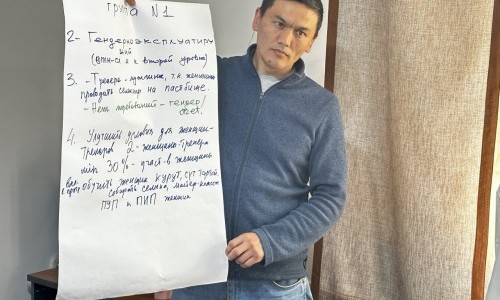
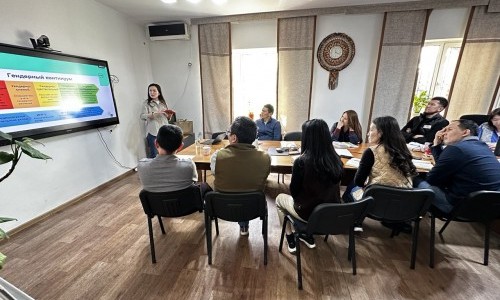
Итоги пастбищного сезона 2018 года были подведены на очередном заседании районной пастбищной комиссии (РПК).
MoreThe development of the unified method, "Monitoring Pastures at the Local Level," is nearing completion.
MoreЧетыре новых моста построены в 2018 году в Кыргызстане при поддержке ОФ “CAMP Алатоо” и Швейцарской ассоциации “Памирские...
More